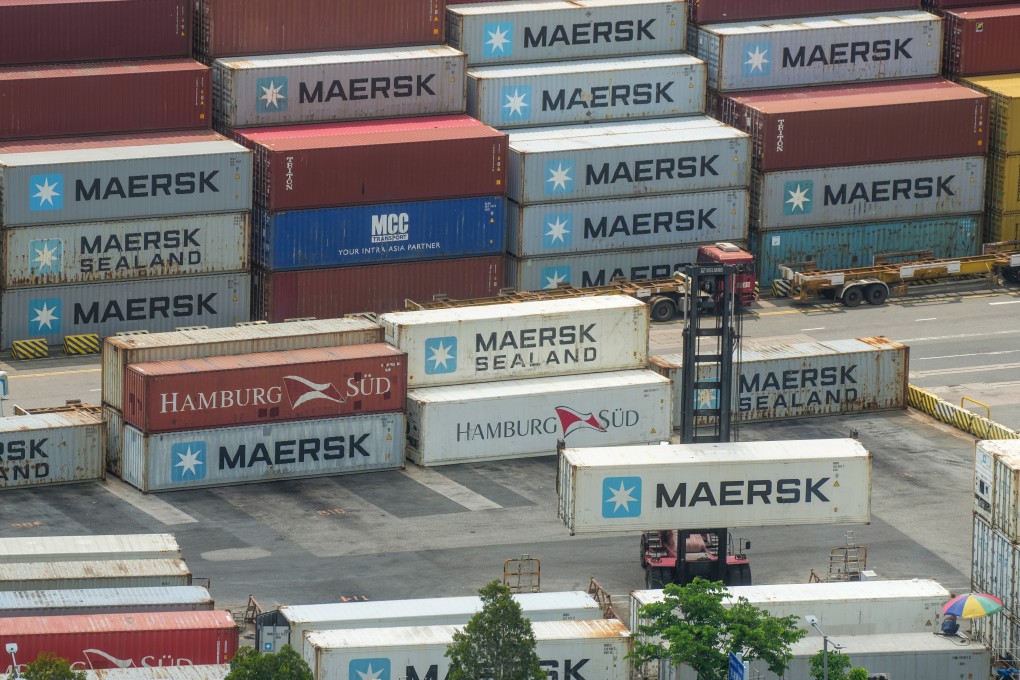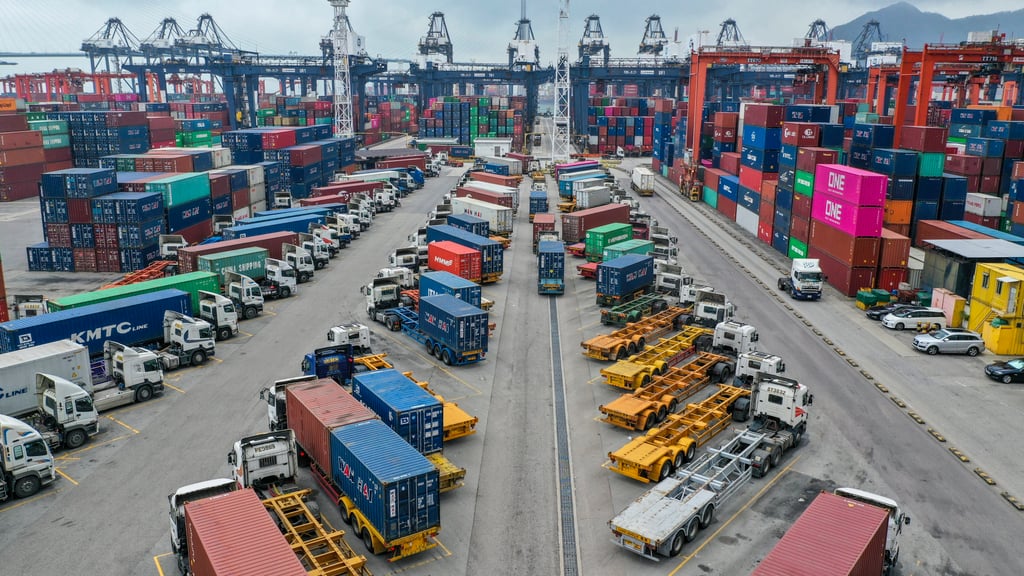Advertisement
Decline in Hong Kong exports to major markets paints grim economic picture; government warns pressure will continue ‘near term’
- Exports in June slump by 11.4 per cent year on year, marking decline for 14th month in a row, driven by weak demand in mainland China, US and European Union
- Trade deficit for June alone stood at HK$56.6 million, as exports and imports both registered declines
Reading Time:2 minutes
Why you can trust SCMP

Hong Kong exports slumped by 11.4 per cent year on year in June, down for the 14th month in a row, driven by weak demand in mainland China, the United States and EU.
Exports fell by 15.5 per cent in the first half of 2023 compared with the same period last year and imports went down by 13.2 per cent, creating a trade deficit of HK$231.6 billion (US$29.6 billion), the Census and Statistics Department said on Tuesday.
Goods sold abroad dropped to HK$337.4 billion in June and imports were down 12.3 per cent to HK$393.9 billion, a trade deficit of HK$56.6 billion for the month.
Advertisement
Exports to the mainland, Hong Kong’s largest trade partner, were down 13.1 per cent year on year in June.

Those to the US went down by 22.1 per cent and exports to Germany fell by 29 per cent.
Advertisement
Advertisement
Select Voice
Choose your listening speed
Get through articles 2x faster
1.25x
250 WPM
Slow
Average
Fast
1.25x